Lottie Lee-Gough, 31, hasn’t bought any new clothes in a year. As soon as she could successfully make clothes herself she ditched the high street and now almost half of her wardrobe is entirely home-sewn. “I would like it to be 100 per cent homemade,” she says.
When we meet she is wearing navy-blue-and-white-striped denim dungarees, homemade of course, and a cream jumper, but she hasn’t always been so adept with a needle and thread.
Lottie recalls trying to make clothes in her early twenties and feeling quite overwhelmed: “I made this amazing shirt with big billowy sleeves but it was just unwearable – the collar was awful even though the sleeves were beautiful.”
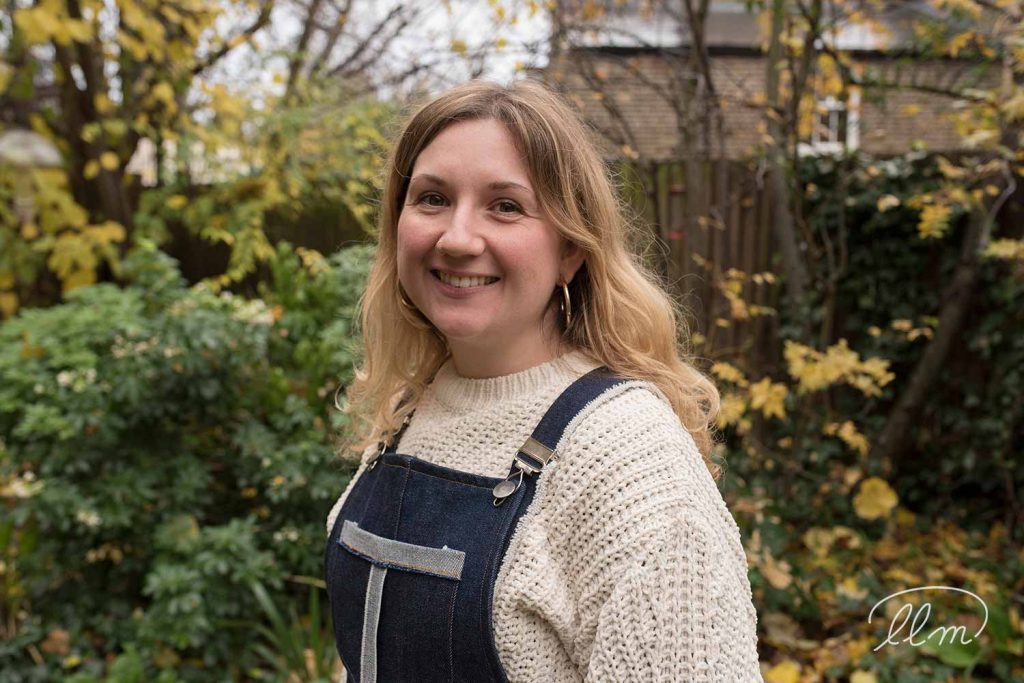
After attending some classes at Sew Over It in Islington, Lottie explains that everything clicked into place: “It was at that point that I was suddenly able to make things that I could wear.” Little did she imagine when she attended those classes how transformative they would prove to be.
When she finished an admin contract earlier this year, Lottie decided to set up her own sewing business and The Wild Orchard Fabric Company was born. Now she sells all-natural fabrics and sewing kits online and at Lady Lane Market.
Finding Buddhism
Lottie lives in a house share on a road jutting off Victoria Park. The house is one of four in a row that makes up a Buddhist community. She has lived there for two years and her room is filled with signs that she makes her own clothes with her sewing machine proudly displayed on her desk, reams of pink and white cotton lined up behind it and stacks of fabric dotted around.
It is a calming environment too, two chairs sit in the bay window overlooking the road, with plants hanging from the ceiling above. Lottie says the house share is unlike other places she has lived in London. The housemates eat together, each taking it in turns to cook dinner.
She says: “I definitely got resentful in the past of paying so much money to live in places that don’t feel very happy whereas here I can feel really confident that we’re all trying to live together. It can be really loving and supportive at times.”
Lottie has been a part of London’s Buddhist community since her last year of university at Queen Mary’s University after attending a meditation class at the Bethnal Green Buddhist Centre.
As part of her practice, she meditates and does yoga on a regular basis as well as meeting as a community to talk each Sunday. Looking back, she says: “At the time I would have found it hard to articulate what was going on.”
“I remember going to the Buddhist Centre and it had a particular atmosphere that I hadn’t experienced before. It was an open and safe place and slightly eccentric really,” explains Lottie, “It felt like a really quiet place to go in the city.”
Founding a sustainable business
For Lottie, Buddhism is “really caring for the planet and being mindful and conscientious about how we interact with everything.” She adds: “When I started the business it was absolutely going to be the foundation of how I was going to work.”
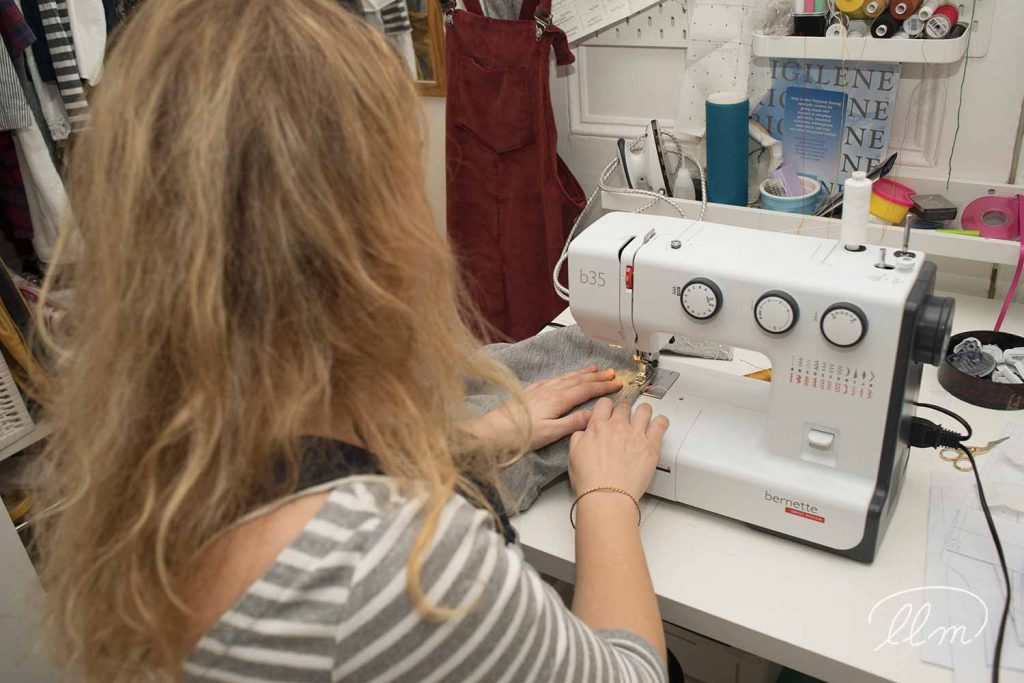
This is why the provenance of the fabric she stocks is so important to Lottie and a big inspiration behind her business after struggling to identify which fabrics were made with natural fibres rather than polyester for her home sewing projects.
Lottie explains that her desire for natural fabrics is two-fold: “There’s the environmental impact of plastic but also the impact of what it means to wear it, it’s not breathable and it’s not something that feels good against the skin.”
Finding ethically and sustainably sourced textiles is difficult, even as a supplier, Lottie says “there is nothing that is a perfectly clean fabric”. In fact, the textile industry is one of the biggest polluters in the world.
Lottie is optimistic that home sewing can make a difference: “The premise I work on is that the textile industry is so polluting because of how the fast fashion industry interacts with it. If everyone was home sewing, the textile industry wouldn’t be having the impact that it does.”
She adds: “To even support people to make their own clothes at home instantly starts to undo some of the damage that fast fashion is having on the planet.”
Becoming her own boss
So far Lottie has loved working for herself. After working at Apple for four years where she loved the supportive company culture but not the consumerist nature of the company, “it’s been the autonomy and creativity that I’ve really enjoyed,” she explains.
Now Lottie has perfected her day-to-day routine: “Working Monday to Friday, nine to five didn’t seem to be getting the best out of me. I tend to work very well in the morning so I start work early, at half seven, eightish. I can do it in my pyjamas.”
To stay motivated, Lottie also finds it helpful to get away from her computer and do something practical, whether that is cutting fabric or putting together sewing kits.
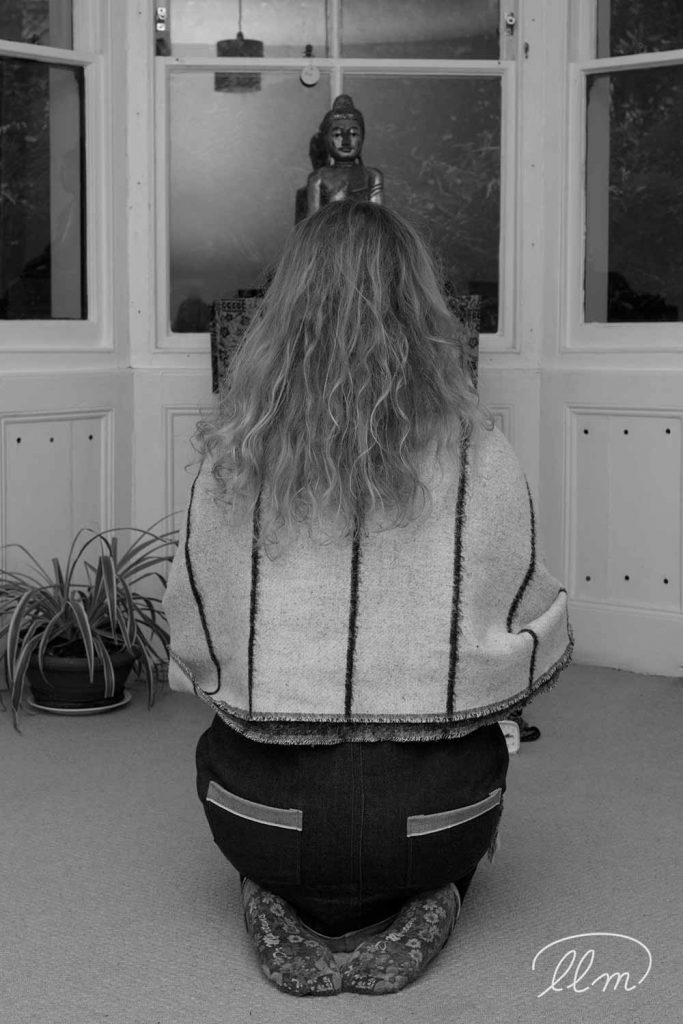
The biggest challenge has been a personal one: “I think it’s been trying to work through my own self-doubt and lack of confidence.” Lottie explains: “It’s coming across these emotional blocks of feeling like, ‘I can’t do this’ or ‘Oh, it’s going to fail’.”
One thing that has helped this is the support through Lady Lane Market, Lottie’s first street market experience. She says: “It’s not that women are held back but I think that we are so conditioned to lack confidence, so I really see the value and importance of being in something like the market.”
Lottie also appreciates the social side having spent the first few months of self-employment setting up the shop digitally: “Being able to come to the market and have a bit of connection just helps give me perspective about what I’m doing. It’s been really great to chat to the other women who are also doing the same thing just to see that it’s possible.”
Inspiration from near and far
As well as drawing inspiration from her fellow traders and Buddhist businesses, Lottie has one closer to home: her mum and dad. They have been running their printing company since she was born and says: “I think seeing them do their business for so long it did give me a natural longing to be an entrepreneur, just wanting to be able to create.”
She turns to her dad for advice on everything from shipping to taxes and her mum helped design the business logo. Her parents, however, do have their reservations about their daughter entering into the business world: “They’re nervous about how hard I will have to work.”
That’s not stopping Lottie from dreaming big, she would like to have a team, make her own dressmaking patterns and run workshops.
Lottie tells the story of her Buddhist role model, a nun called Tenzin Palmo. Tenzin lived in a three-foot-by-three-foot meditation box in a Himalayan cave for 20 years. Lottie says: “When I read her story I was moved because she talks about her life being like a river. I really understood that she wasn’t doing something really radical by cutting herself off and living in a cave, it just kept being the right thing for her. I realised that’s how I need to live my life.”
Lottie is a pioneer. She is part of a small but growing movement of entrepreneurs practising a more ethical form of capitalism, one where eschewing consumerism is at the heart of their business. The Wild Orchard Fabric Company is providing customers with an alternative to planet-plundering ‘fast fashion’. Lottie still loves fashion, she is just finding a new, better way to create and enjoy it. One which is accessible for all who are looking for more sustainable ways to live.
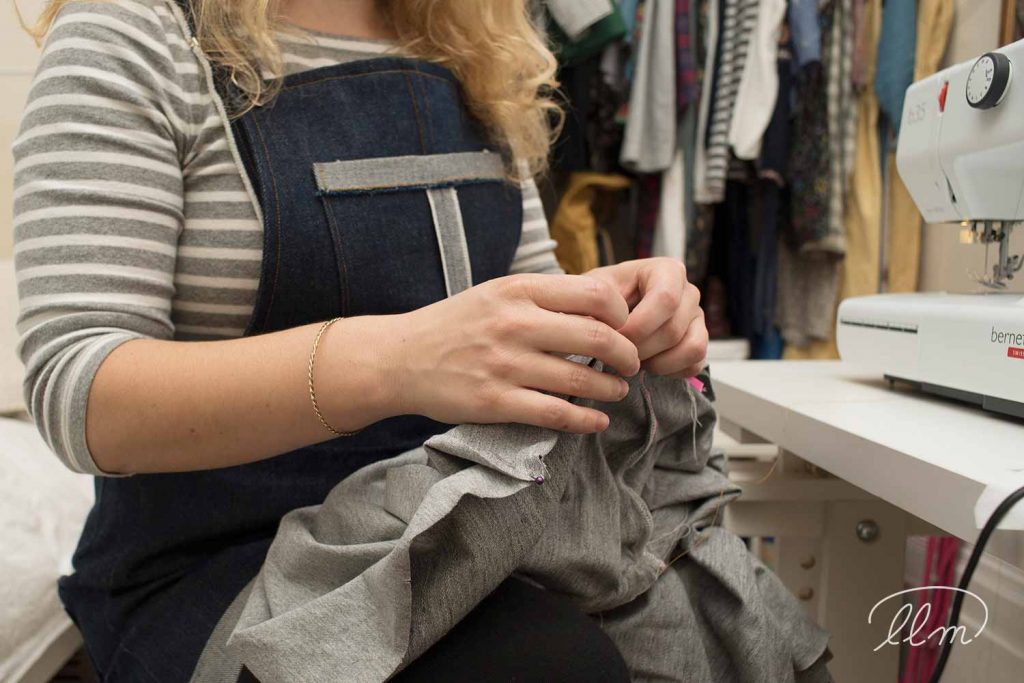

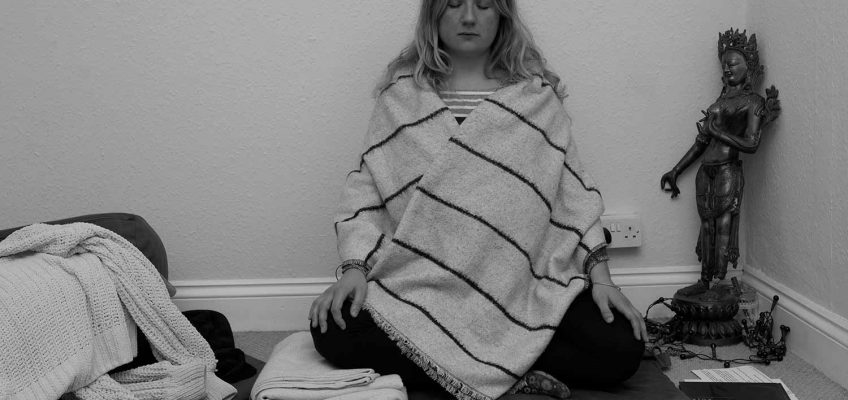
Leave a Reply